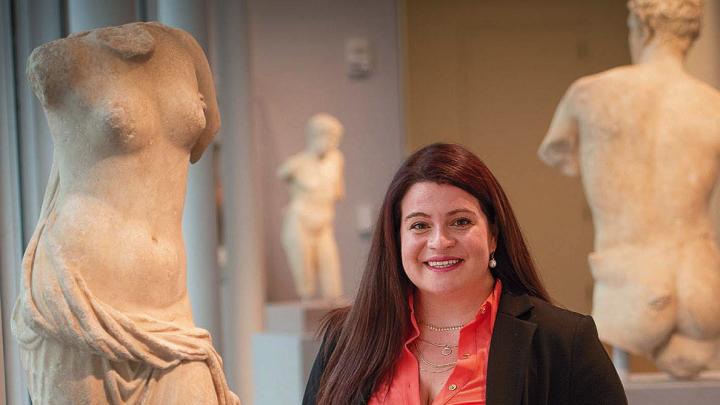Growing up in Costa Rica, Irene Soto Marín once asked her Sunday school teachers the modern-day value of Judas’s bounty for betraying Jesus. Her question—and her other curiosities about the past—launched her career as an economic historian of Roman Egypt. When she was 16, her family moved to New Jersey, and she soon attended nearby Barnard College, majoring in anthropology and ancient studies. There, she joined a summer archaeological dig in Rome. “I was hooked,” she says. “I liked the boring aspects…the slowness of it, the cleaning of the objects.” She later studied in Egypt and continued to visit the country during her doctoral studies of the ancient world at NYU, a postdoc in Switzerland, and a two-year professorship at the University of Michigan. On those Egyptian digs, Soto Marín focused on ceramics, examining whether items were locally made or imported in order to discern ancient trade patterns. She soon became a numismatist (a coin scholar). An assistant professor of ancient history in the classics department, she says that tracking currency circulation shows “how one region of the world traded with another.” She also gleans evidence from paper. In Egypt’s hot, dry environment, reed-based papyrus is well preserved. Using those documents, Soto Marín “get[s] a glimpse into the daily life of regular people.” She’s found that ancient societies can resemble modern ones: “People are still complaining about prices going up or making shopping lists.” When not exploring the ancient world, Soto Marín wanders a digital world. “I love my Nintendo Switch,” she says of the portable gaming device more commonly found in college dorms than professors’ offices. Unsurprisingly, her favorite game—Zelda: Breath of the Wild—features ancient ruins. She’d like to conduct an archaeological dig there, but until that’s possible, she’ll stick to dusting off real-world objects.
Irene Soto Marín

Irene Soto Marín
Photograph by Stu Rosner
You might also like
Breaking Bread
Alexander Heffner ’12 plumbs the state of democracy.
Reading the Winds
Thai sailor Sophia Montgomery competes in the Olympics.
Chinese Trade Dragons
How Will China’s Rapid Growth in the Clean Technology Industry Reshape U.S.-China Policy?
More to explore
Harvard Philosophy Professor Alison Simmons on "Being a Minded Thing"
A philosopher on perception, the canon, and being “a minded thing”







